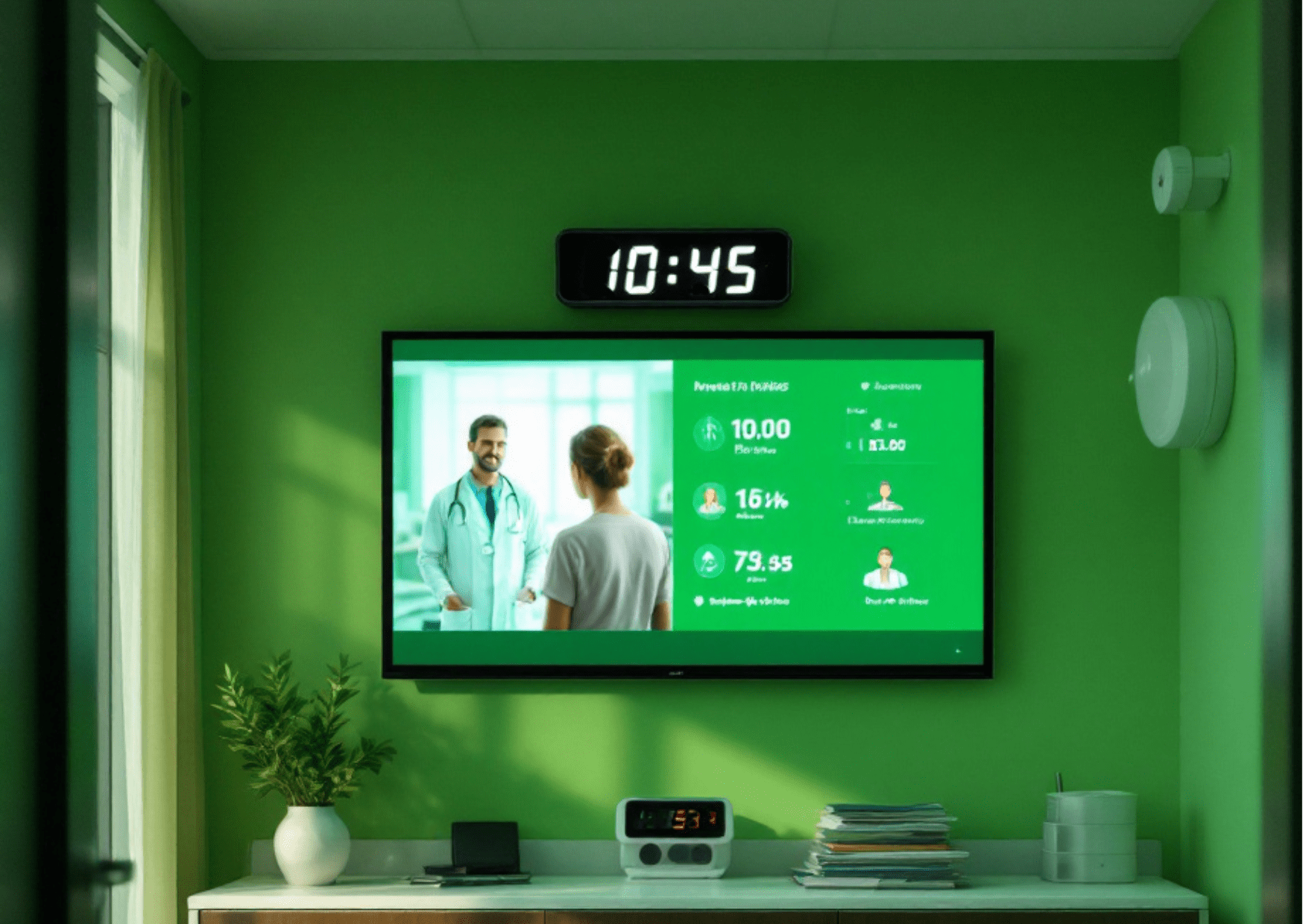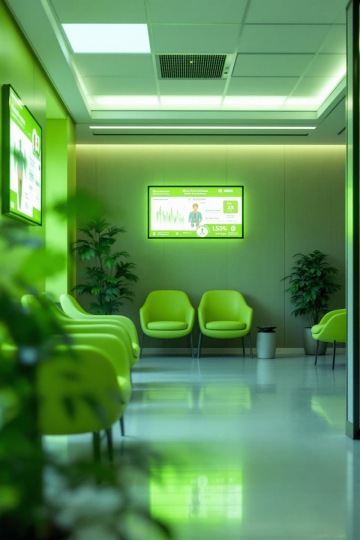
How to Implement Digital Signage in Healthcare
Modern healthcare facilities face significant challenges in patient communication and information sharing. Overcrowded waiting rooms, insufficiently informed patients, and the need to share real-time updates are daily realities for many clinics and hospitals. Digital display systems offer an effective solution to these communication challenges.
Quick Overview
Ki-Wi Signage - professional software for managing and distributing digital content across display devices.
Required Equipment:
- Display devices (screens)
- Internet connection
- Ki-Wi Signage software (Ki-Wi Player and Ki-Wi Server)
What is Ki-Wi Signage
Ki-Wi Signage is a professional digital platform for managing and distributing content on display devices, combining powerful Digital Signage software with kiosk solution capabilities.
Core Features:
- Centralized content management across multiple screens
- Content synchronization across all devices
- Support for various media types (videos, images, documents, web applications)
- Integration capabilities with external systems via open APIs
The software enables content scheduling based on time, location, or device type, significantly simplifying the work of communication staff.

Application of Ki-Wi Signage in Healthcare
In Waiting Areas
Ki-Wi Signage can display informational content for patients, including health education materials and current announcements. When integrated with queue management systems, it can show current queue numbers, improving patient orientation and reducing anxiety.
Specific applications in waiting areas:
- Display of current queue management numbers
- Health education material presentation
- Information about office hours and physician availability
- Real-time waiting time updates
In Medical Offices
In medical offices, Ki-Wi Signage assists staff by displaying crucial information. When integrated with hospital information systems, it provides doctors and nurses with real-time data essential for their work.
Office applications include:
- Overview of scheduled patients for staff
- Display of examination results or educational materials for patients
- Information about current medical procedures and updates
- Access to important documents and forms
In Common Areas
In shared spaces, Ki-Wi Signage serves as an information system with navigation and important announcements for visitors. Centrally managed content ensures all information remains current and consistent throughout the facility.
Common area applications:
- Digital wayfinding system for building navigation
- Operating hours information for different departments
- Important safety notices and hygiene measures
- General facility information and services offered
During Emergency Situations
In response to emergencies in healthcare facilities, Ki-Wi Signage integrates with the Crisis Information and Alert System (CIAS). This solution, implemented at facilities like the University Hospital Olomouc, provides an effective tool for rapid communication during security incidents.
The CIAS integration works as follows: when a crisis occurs, operators activate a predefined alert scenario, CIAS sends display text to the Ki-Wi system (in plain text format), and Ki-Wi immediately displays it across all connected screens.
This integration enables rapid and uniform information distribution to both patients and staff across the entire facility, significantly contributing to safety and coordinated response during crisis situations.
Technical Advantages of Ki-Wi Signage
Security
Ki-Wi Signage emphasizes on security, crucial in healthcare settings.
Security features:
- Encrypted communication
- Access rights management for different staff levels
- Secure browser for all content types
Reliability
The Store & Play feature ensures system operation even during internet outages, essential in critical healthcare environments.
Additional reliability features:
- Automatic content and system updates
- Remote management of all devices
- 24/7 network monitoring
- Redundant data storage for backup
Frequently Asked Questions (FAQ)
Costs vary depending on the number of screens and required functionalities. Contact our specialists for a specific calculation.
Total implementation time depends on our partners and specific customer requirements. Installing Ki-Wi Signage software itself takes only minutes per screen.
Physical screen installation and integration with various systems are additional project phases, with timing varying based on specific conditions and integration scope.
Yes, Ki-Wi Signage offers extensive integration options through various interfaces (REST API, MQTT, WebSocket, JSON-RPC, XML-RPC). The system is designed to adapt to various existing solutions.
Yes, the company offers technical support through its Helpdesk.
Service levels depend on the chosen subscription type - ENTRY, PREMIUM, or ENTERPRISE.
Each level offers different incident response times (1-30 business days depending on incident category and service level). Detailed support and service conditions are defined in the service terms.
Conclusion
Ki-Wi Signage represents a modern solution for digital content management in healthcare facilities. Its flexibility, security, and integration capabilities can significantly improve communication with both patients and staff.
Implementing Ki-Wi Signage isn't just a technological innovation - it's a step toward a more modern and efficient healthcare facility where information flows smoothly and all stakeholders have access to current and relevant information.
